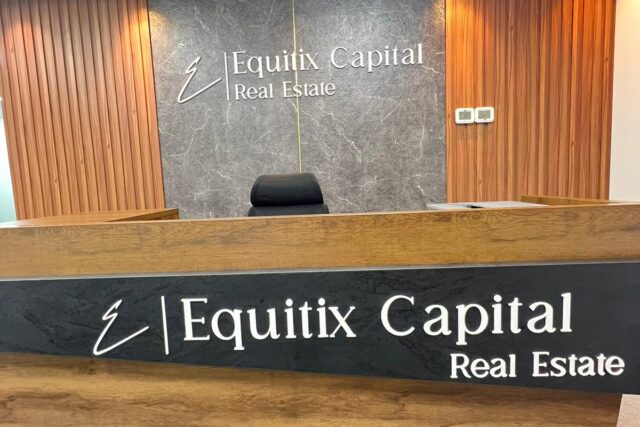
Dubai’s real estate market is dynamic and diverse, offering a range of opportunities for investors, homeowners, and renters. Whether you’re looking to buy, sell, or rent property in Dubai, understanding the process is crucial to making informed decisions. This guide will walk you through each aspect, providing insights and tips to help you navigate the market.

1. Buying Property in Dubai
A. Determine Your Budget and Financing Options
- Before you start your property search, assess your financial situation. Consider your savings, monthly income, and the possibility of securing a mortgage.
- Mortgage Pre-Approval: It’s advisable to get pre-approved for a mortgage if you’re financing your purchase. This gives you a clear idea of your budget and strengthens your bargaining position.
B. Choose the Right Location
- Popular Areas: Dubai offers a variety of neighborhoods, each with its unique characteristics. Popular areas include Downtown Dubai, Dubai Marina, Palm Jumeirah, and Arabian Ranches.
- Consider Your Lifestyle: Proximity to work, schools, and amenities such as shopping malls and public transport are important factors when choosing a location.
C. Work with a Reputable Real Estate Agent
- A knowledgeable real estate agent can help you find properties that match your criteria, guide you through the buying process, and negotiate on your behalf.
D. Understand the Legal Process
- Title Deed and Oqood: Ensure that the property has a clear title deed or Oqood (for off-plan properties).
- No Objection Certificate (NOC): If buying from a developer, obtain a NOC stating that the property is free from any debts.
- Transfer of Ownership: The transfer is done at the Dubai Land Department, where both buyer and seller need to be present.
2. Selling Property in Dubai
A. Set the Right Price
- Market Research: Analyze recent sales in your area to set a competitive price.
- Property Valuation: Consider getting a professional valuation to determine your property’s market value.
B. Market Your Property
- Real Estate Agents: Collaborate with a reputable agent to list your property.
- Online Listings: Use online platforms like Property Finder and Bayut to reach a larger audience.
- Staging: Present your property in the best light by ensuring it’s clean, well-maintained, and staged for viewings.
C. Legal Requirements
- NOC from Developer: Obtain a NOC from the developer confirming that all service charges are paid.
- Sales Agreement: Draft a Memorandum of Understanding (MoU) outlining the terms of the sale, including the deposit amount and payment schedule.
- Transfer of Ownership: Complete the sale at the Dubai Land Department, where the title deed will be transferred to the buyer.
3. Renting Property in Dubai
A. Types of Rental Contracts
- Annual Lease: The most common type of rental agreement in Dubai, typically paid in one to four cheques over the year.
- Short-Term Rentals: Ideal for those not looking to commit to a full-year lease, though often more expensive on a per-month basis.
B. Finding the Right Property
- Property Portals: Use websites like Dubizzle, Property Finder, and Bayut to search for rental properties.
- Real Estate Agents: Work with agents who specialize in rental properties to help you find a place that meets your needs.
C. Understand Your Rights and Responsibilities
- Tenancy Contract: Ensure that the tenancy contract is registered with Ejari, the official rental agreement system in Dubai.
- Security Deposit: Typically, a refundable deposit of 5% of the annual rent is required.
- Maintenance: Clarify who is responsible for maintenance. In Dubai, landlords are generally responsible for major repairs, while tenants handle minor issues.
D. Rent Increases and Renewal
- Rent Cap: Be aware of the Rent Cap Law, which limits how much a landlord can increase rent annually.
- Renewal Process: Both parties must agree on renewal terms, and the landlord must give 90 days’ notice if they plan to increase the rent.
4. Navigating the Dubai Real Estate Market
A. Legal Considerations
- RERA Guidelines: Familiarize yourself with the Real Estate Regulatory Agency (RERA) guidelines to understand your rights and obligations as a buyer, seller, or tenant.
- Property Ownership for Foreigners: Non-UAE residents can buy property in designated freehold areas, while leasehold areas are available for long-term leases.
B. Market Trends and Insights
- Market Fluctuations: Stay updated on market trends, including price fluctuations, demand in different areas, and upcoming developments.
- Investment Opportunities: Dubai offers various investment opportunities, including off-plan properties, which can be more affordable and offer potential capital gains.
5. Tips for Success
- Research Thoroughly: Whether buying, selling, or renting, thorough research will help you make informed decisions.
- Work with Professionals: Engage experienced real estate agents, legal advisors, and financial consultants to guide you through the process.
- Plan for the Long-Term: Consider your long-term goals, whether it’s for investment, living, or business purposes, to ensure your real estate decisions align with your future plans.
By understanding the processes involved in buying, selling, and renting property in Dubai, you can navigate the market with confidence and make the best decisions for your needs.



Leave a Reply